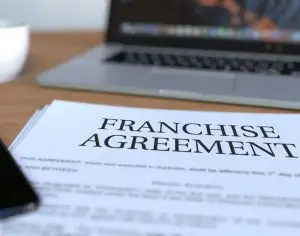It can be of real concern to a franchisee if the franchisor decides they want to make changes to the franchise model – and without even consulting members of the network. They may even attempt to alter the system beyond recognition. So, in these circumstances, do franchisees have any grounds to block such a move?
A good starting point is to look at the terms of the franchise agreement and specifically at how the franchising ‘system’ or ‘model’ is defined within this legal document. If the definition of ‘system’ or ‘model’ has been drafted in broad terms – which is not unusual in a franchise agreement – then it may be tricky to argue that the proposed changes are substantially different to what has been referred to and agreed in the document.
Therefore, it is crucial to analyse the exact wording of the franchise contract. If the wording of the contract does not appear to benefit the franchisee, then it may be possible to argue that the franchisor’s proposed changes amount to a ‘derogation from grant.’
‘Derogation from grant’ is a common law concept that prevents, in this case the franchisor, from substantially making changes to the original agreement. It has often been used in disputes over land, such as changing the right of way, which deprives the ‘grantee’ from carrying out their ‘normal day-to-day duties’.
In the case of Tyre 20 v Fleet Mobile Tyres Limited (2006), the Court of Appeal decided that the franchisor was not permitted to make changes that would prevent a franchisee from ‘benefitting from the rights given to them’.
To do so would amount to a potential ‘derogation from the grant of rights’. Such a move would entitle the franchisee to either terminate the agreement, or to affirm this agreement and sue for damages.
Regarding the Tyre 20 v Fleet Mobile Tyres case, the franchisor wanted to make changes to the livery on their network of vans. The franchisor was keen to promote the company’s centralised website, in order to encourage online sales. This would mean the franchisor’s head office staff could process sales at discounted prices which would be a huge disadvantage to franchisees.
Most franchise agreements will contain a provision stipulating that the franchisor and franchisee should act in good faith when dealing with each other at all times. Even without such a clause, franchisees may be able to argue that a duty of ‘good faith’ should be implied in any franchise agreement.
Consider the case of Bates v Post Office Limited (No.3) (2019). This case established that a ‘duty of good faith’ was likely to be implied into – what the law refers to – as contracts deemed as ‘relational’. Franchising agreements typically fall within the definition of a ‘relational contract.’
‘Good faith’ requires contracted parties to act with honesty and refrain from conduct deemed as commercially unacceptable by reasonable and honest people. The term ‘good faith’ also stipulates that a contract should be approached in the spirit of transparency, co-operation, trust and confidence.
If the changes proposed by the franchisor are commercially unworkable, then the franchisee is likely to have grounds for arguing that these changes are not in the spirit of ‘good faith.’ They will argue that the franchisor is obliged to show good faith in all of its dealings with franchisees.
In conclusion, a franchisee faced with a franchisor who is attempting to implement radical changes to the model, may have grounds on which to resist these changes. The franchisee may have the right to terminate an agreement because of the franchisor’s conduct – which could violate the provisions of the contract.
This is why the agreement needs to be scrutinised carefully. We would recommend that legal advice is sought in relation to this complex matter. The franchisee needs to understand their legal position to prevent the franchisor from claiming damages, following any wrong move by the former.
It is important for a franchisee to know if they are entitled to terminate a contract in order to avoid making a wrong decision – and end up having to pay considerable costs and damages to the franchisor. Although franchisees do not normally hold the upper hand in contract negotiations, they would be wise to insist on having certain provisions included in any agreement. One such provision requires parties to act in ‘good faith’, with ‘honesty’ and in a ‘reasonable manner’ with each other at all times.

































